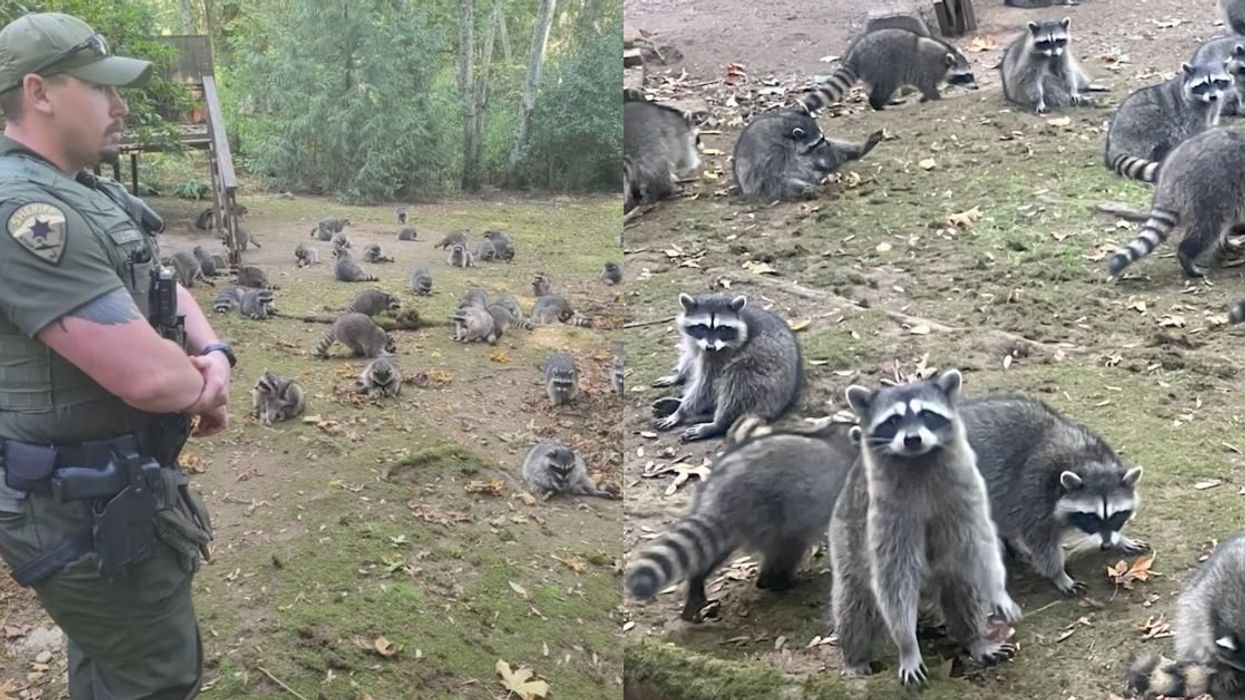A woman who began feeding a family of raccoons decades ago was forced to flee her property in Kitsap County, Washington when the number of visiting critters increased recently to about 50 to 100.
Kevin McCarty, a spokesperson for the sheriff’s office, relayed the incident in which the woman, who lived in a home near Poulsbo, had called 911 about the "aggressive" woodland creatures that showed up en masse.
“She said those raccoons were becoming increasingly more aggressive, demanding food, that they would hound her day and night—scratching at the outside of her home, at the door," McCarty told local news.
He continued:
"If she pulled up her car, they would surround the car, scratch at the car, surround her if she went from her front door to her car or went outside at all."
“They saw this as a food source now, so they kept coming back to it and they kept expecting food.”
You can watch a clip of the raccoon infestation shared by the Sheriff's office here.
McCarty called the "nuisance problem" a situation that was the woman's "own making that she has to deal with."
The Sheriff’s office and the Washington Department of Fish and Wildlife (WDFW) determined no laws were broken, according to McCarty.
Here is a news report.
- YouTubeyoutu.be
Social media users said "Nope."
Bridget Mire, a WDFW spokesperson noted it is illegal under state law to feed large carnivores, such as bears or cougars.
Mire said that while municipalities and counties may have local statutes prohibiting the feeding of other wildlife, it is currently not against current state law.
In an email, Mire said the agency wildlife conflict specialist has met the woman and she has stopped feeding the pesky woodland creatures.
“The raccoons appear to have started dispersing now that they are no longer being fed, and we are glad for a positive outcome to this case," said Mire.
The agency strongly advises against feeding raccoons as they may cause "undesirable situations" for your family, neighbors, and pets.
"Raccoons that are fed by people often lose their fear of humans and may become aggressive when not fed as expected," the website states.
The agency also said:
"Artificial feeding also tends to concentrate raccoons in a small area; overcrowding can spread diseases and parasites."














 @FrankC164/X
@FrankC164/X
 AMC
AMC
